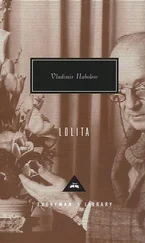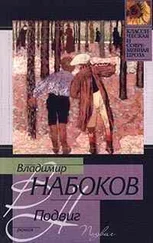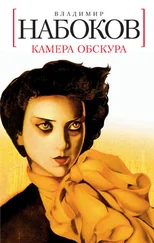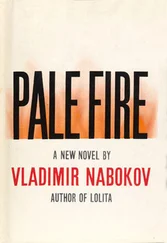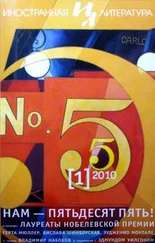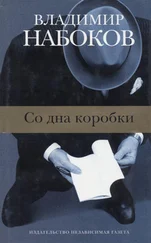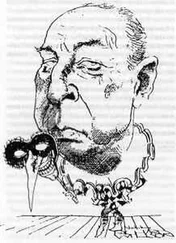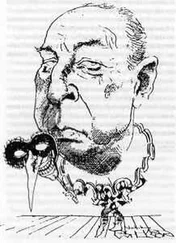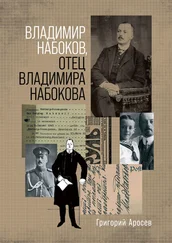Владимир Набоков - Ada, or Ador - A Family Chronicle
Здесь есть возможность читать онлайн «Владимир Набоков - Ada, or Ador - A Family Chronicle» весь текст электронной книги совершенно бесплатно (целиком полную версию без сокращений). В некоторых случаях можно слушать аудио, скачать через торрент в формате fb2 и присутствует краткое содержание. Жанр: Классическая проза, Современные любовные романы, на английском языке. Описание произведения, (предисловие) а так же отзывы посетителей доступны на портале библиотеки ЛибКат.
- Название:Ada, or Ador: A Family Chronicle
- Автор:
- Жанр:
- Год:неизвестен
- ISBN:нет данных
- Рейтинг книги:3 / 5. Голосов: 1
-
Избранное:Добавить в избранное
- Отзывы:
-
Ваша оценка:
- 60
- 1
- 2
- 3
- 4
- 5
Ada, or Ador: A Family Chronicle: краткое содержание, описание и аннотация
Предлагаем к чтению аннотацию, описание, краткое содержание или предисловие (зависит от того, что написал сам автор книги «Ada, or Ador: A Family Chronicle»). Если вы не нашли необходимую информацию о книге — напишите в комментариях, мы постараемся отыскать её.
Ada, or Ador: A Family Chronicle — читать онлайн бесплатно полную книгу (весь текст) целиком
Ниже представлен текст книги, разбитый по страницам. Система сохранения места последней прочитанной страницы, позволяет с удобством читать онлайн бесплатно книгу «Ada, or Ador: A Family Chronicle», без необходимости каждый раз заново искать на чём Вы остановились. Поставьте закладку, и сможете в любой момент перейти на страницу, на которой закончили чтение.
Интервал:
Закладка:
Her last note, found on her and addressed to her husband and son, might have come from the sanest person on this or that earth.
Aujourd’hui (heute- toity!) I, this eye-rolling toy, have earned the psykitsch right to enjoy a landparty with Herr Doktor Sig, Nurse Joan the Terrible, and several ‘patients,’ in the neighboring bar (piney wood) where I noticed exactly the same skunk-like squirrels, Van, that your Darkblue ancestor imported to Ardis Park, where you will ramble one day, no doubt. The hands of a clock, even when out of order, must know and let the dumbest little watch know where they stand, otherwise neither is a dial but only a white face with a trick mustache. Similarly, chelovek (human being) must know where he stands and let others know, otherwise he is not even a klok (piece) of a chelovek, neither a he, nor she, but ‘a tit of it’ as poor Ruby, my little Van, used to say of her scanty right breast. I, poor Princesse Lointaine, très lointaine by now, do not know where I stand. Hence I must fall. So adieu, my dear, dear son, and farewell, poor Demon, I do not know the date or the season, but it is a reasonably, and no doubt seasonably, fair day, with a lot of cute little ants queuing to get at my pretty pills.
[Signed] My sister’s sister who teper’
iz ada (‘now is out of hell’)
‘If we want life’s sundial to show its hand,’ commented Van, developing the metaphor in the rose garden of Ardis Manor at the end of August, 1884, ‘we must always remember that the strength, the dignity, the delight of man is to spite and despise the shadows and stars that hide their secrets from us. Only the ridiculous power of pain made her surrender. And I often think it would have been so much more plausible, esthetically, ecstatically, Estotially speaking — if she were really my mother.’
4
When, in the middle of the twentieth century, Van started to reconstruct his deepest past, he soon noticed that such details of his infancy as really mattered (for the special purpose the reconstruction pursued) could be best treated, could not seldom be only treated, when reappearing at various later stages of his boyhood and youth, as sudden juxtapositions that revived the part while vivifying the whole. This is why his first love has precedence here over his first bad hurt or bad dream.
He had just turned thirteen. He had never before left the comforts of the paternal roof. He had never before realized that such ‘comforts’ might not be taken for granted, only occurring in some introductory ready-made metaphor in a book about a boy and a school. A few blocks from the schoolgrounds, a widow, Mrs Tapirov, who was French but spoke English with a Russian accent, had a shop of objets d’art and more or less antique furniture. He visited it on a bright winter day. Crystal vases with crimson roses and golden-brown asters were set here and there in the fore part of the shop — on a gilt-wood console, on a lacquered chest, on the shelf of a cabinet, or simply along the carpeted steps leading to the next floor where great wardrobes and flashy dressers semi-encircled a singular company of harps. He satisfied himself that those flowers were artificial and thought it puzzling that such imitations always pander so exclusively to the eye instead of also copying the damp fat feel of live petal and leaf. When he called next day for the object (unremembered now, eighty years later) that he wanted repaired or duplicated, it was not ready or had not been obtained. In passing, he touched a half-opened rose and was cheated of the sterile texture his fingertips had expected when cool life kissed them with pouting lips. ‘My daughter,’ said Mrs Tapirov, who saw his surprise, ‘always puts a bunch of real ones among the fake pour attraper le client. You drew the joker.’ As he was leaving she came in, a schoolgirl in a gray coat with brown shoulder-length ringlets and a pretty face. On another occasion (for a certain part of the thing — a frame, perhaps — took an infinite time to heal or else the entire article proved to be unobtainable after all) he saw her curled up with her schoolbooks in an armchair — a domestic item among those for sale. He never spoke to her. He loved her madly. It must have lasted at least one term.
That was love, normal and mysterious. Less mysterious and considerably more grotesque were the passions which several generations of schoolmasters had failed to eradicate, and which as late as 1883 still enjoyed an unparalleled vogue at Riverlane. Every dormitory had its catamite. One hysterical lad from Upsala, cross-eyed, loose-lipped, with almost abnormally awkward limbs, but with a wonderfully tender skin texture and the round creamy charms of Bronzino’s Cupid (the big one, whom a delighted satyr discovers in a lady’s bower), was much prized and tortured by a group of foreign boys, mostly Greek and English, led by Cheshire, the rugby ace; and partly out of bravado, partly out of curiosity, Van surmounted his disgust and coldly watched their rough orgies. Soon, however, he abandoned this surrogate for a more natural though equally heartless divertissement.
The aging woman who sold barley sugar and Lucky Louse magazines in the corner shop, which by tradition was not strictly out of bounds, happened to hire a young helper, and Cheshire, the son of a thrifty lord, quickly ascertained that this fat little wench could be had for a Russian green dollar. Van was one of the first to avail himself of her favors. These were granted in semi-darkness, among crates and sacks at the back of the shop after hours. The fact of his having told her he was sixteen and a libertine instead of fourteen and a virgin proved a source of embarrassment to our hell-raker when he tried to bluster his inexperience into quick action but only succeeded in spilling on the welcome mat what she would have gladly helped him to take indoors. Things went better six minutes later, after Cheshire and Zographos were through; but only at the next mating party did Van really begin to enjoy her gentleness, her soft sweet grip and hearty joggle. He knew she was nothing but a fubsy pig-pink whore let and would elbow her face away when she attempted to kiss him after he had finished and was checking with one quick hand, as he had seen Cheshire do, if his wallet was still in his hip pocket; but somehow or other, when the last of some forty convulsions had come and gone in the ordinary course of collapsing time, and his train was bowling past black and green fields to Ardis, he found himself endowing with unsuspected poetry her poor image, the kitchen odor of her arms, the humid eyelashes in the sudden gleam of Cheshire’s lighter and even the creaky steps of old deaf Mrs Gimber in her bedroom upstairs.
In an elegant first-class compartment, with one’s gloved hand in the velvet side-loop, one feels very much a man of the world as one surveys the capable landscape capably skimming by. And every now and then the passenger’s roving eyes paused for a moment as he listened inwardly to a nether itch, which he supposed to be (correctly, thank Log) only a minor irritation of the epithelium.
5
In the early afternoon he descended with his two suitcases into the sunny peace of the little rural station whence a winding road led to Ardis Hall, which he was visiting for the first time in his life. In a miniature of the imagination, he had seen a saddled horse prepared for him; there was not even a trap. The station master, a stout sunburnt man in a brown uniform, was sure they expected him with the evening train which was slower but had a tea car. He would ring up the Hall in a moment, he added as he signaled to the anxious engine driver. Suddenly a hackney coach drove up to the platform and a red-haired lady, carrying her straw hat and laughing at her own haste, made for the train and just managed to board it before it moved. So Van agreed to use the means of transportation made available to him by a chance crease in the texture of time, and seated himself in the old calèche. The half-hour drive proved not unpleasant. He was taken through pinewoods and over rocky ravines, with birds and other animals singing in the flowering undergrowth. Sunflecks and lacy shadows skimmed over his legs and lent a green twinkle to the brass button deprived of its twin on the back of the coachman’s coat. They passed through Torfyanka, a dreamy hamlet consisting of three or four log izbas, a milkpail repair shop and a smithy smothered in jasmine. The driver waved to an invisible friend and the sensitive runabout swerved slightly to match his gesture. They were now spinning along a dusty country road between fields. The road dipped and humped again, and at every ascent the old clockwork taxi would slow up as if on the brink of sleep and reluctantly overcome its weakness.
Читать дальшеИнтервал:
Закладка:
Похожие книги на «Ada, or Ador: A Family Chronicle»
Представляем Вашему вниманию похожие книги на «Ada, or Ador: A Family Chronicle» списком для выбора. Мы отобрали схожую по названию и смыслу литературу в надежде предоставить читателям больше вариантов отыскать новые, интересные, ещё непрочитанные произведения.
Обсуждение, отзывы о книге «Ada, or Ador: A Family Chronicle» и просто собственные мнения читателей. Оставьте ваши комментарии, напишите, что Вы думаете о произведении, его смысле или главных героях. Укажите что конкретно понравилось, а что нет, и почему Вы так считаете.

